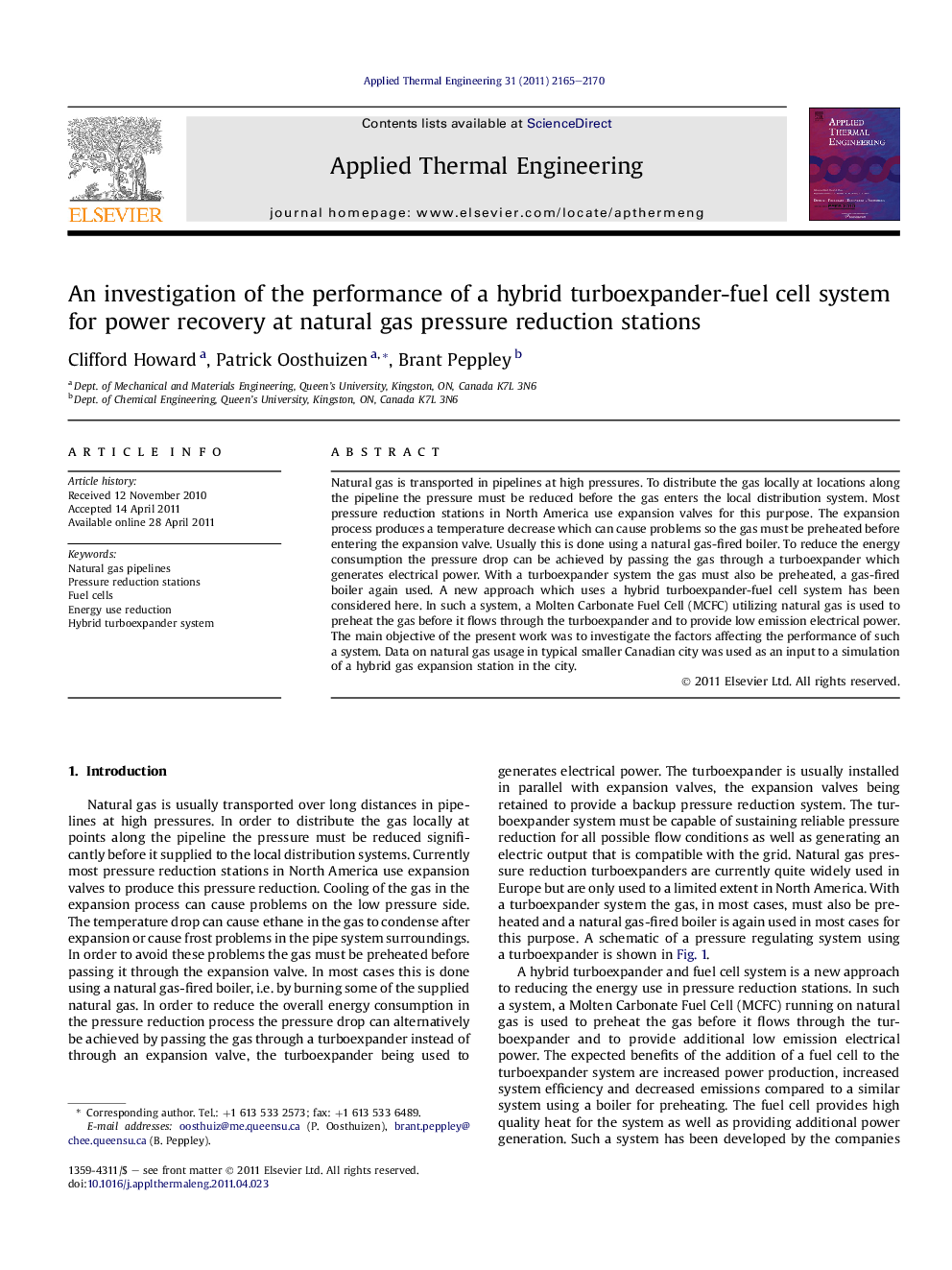| Article ID | Journal | Published Year | Pages | File Type |
|---|---|---|---|---|
| 647872 | Applied Thermal Engineering | 2011 | 6 Pages |
Natural gas is transported in pipelines at high pressures. To distribute the gas locally at locations along the pipeline the pressure must be reduced before the gas enters the local distribution system. Most pressure reduction stations in North America use expansion valves for this purpose. The expansion process produces a temperature decrease which can cause problems so the gas must be preheated before entering the expansion valve. Usually this is done using a natural gas-fired boiler. To reduce the energy consumption the pressure drop can be achieved by passing the gas through a turboexpander which generates electrical power. With a turboexpander system the gas must also be preheated, a gas-fired boiler again used. A new approach which uses a hybrid turboexpander-fuel cell system has been considered here. In such a system, a Molten Carbonate Fuel Cell (MCFC) utilizing natural gas is used to preheat the gas before it flows through the turboexpander and to provide low emission electrical power. The main objective of the present work was to investigate the factors affecting the performance of such a system. Data on natural gas usage in typical smaller Canadian city was used as an input to a simulation of a hybrid gas expansion station in the city.
► A hybrid fuel cell-turboexpander natural gas pressure reduction system is examined. ► Supply conditions and gas flow rates for a smaller Canadian city are used as inputs. ► The cost of the gas consumed and the revenue from electricity generated are estimated. ► The results indicate that the proposed hybrid system has considerable potential.
